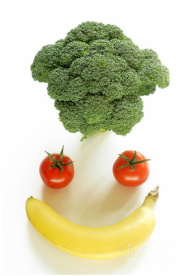 Having read yet another study showing the importance of vitamin D, this time in relation to autism. I thought I'd explain more about Vitamin D as it is something we are hearing more and more on the news but I'm not sure most people fully comprehend the importance of this particular vitamin and why the NHS are now recommending supplementation for many people throughout the winter months. Before studying Nutritional Therapy, I had of course, heard of it ('something to do with sunshine?!') but really didn't understand what or why it was so crucial. Vitamin D, like any 'vitamin' is crucial to our survival. Vitamins are required in our diet as they cannot be synthesised or made by the body. So we have to eat enough sources of (for example) vitamin C, so it can perform vital and necessary jobs around the body. In a nutshell. [Interesting fact by the way - humans, monkeys guinea pigs and fruit bats are some of the only animals who can't make vitamin C - your dog can make it themselves, but we need to eat lots of citrus fruit and dark leafy greens!] But vitamin D is slightly different from other vitamins. First of all technically we can synthesise it when we are exposed to enough sunlight. When we aren't getting enough (e.g. in winter, working in an office and not getting outside enough) we need to rely on dietary sources. Obviously this is a modern problem as hundreds of years ago when we spent most of the day outside and didn't slather on suncream (which incidentally blocks the UV light needed to synthesise vitamin D) vitamin D deficiency probably wasn't an issue. Nowadays the WHO believes we are facing a global health crisis with over one billion people suspected to be either deficient or suboptimal with their vitamin D levels causing incredible health problems. Some of the more minor symptoms include migraines, low energy, joint pain, recurrent infections and low mood. Secondly, vitamin D works more like a hormone in our body controlling the absorption of important minerals such as calcium and phosphorus so of course impacts the normal growth of teeth and bones. It also influences over 2000 genes (!!) in our body so becoming deficient, or even below optimal levels can have disastrous effects on our body and has been linked to heart disease, depression, low immunity, asthma, diabetes, bronchitis, gum disease, weight gain, osteoporosis, PMS, m/s and other autoimmune conditions and as this more recent study shows autism.... (http://onlinelibrary.wiley.com/…/10.1111/jcpp.12652/abstract) But even the richest dietary sources of vitamin D (oily fish, liver, eggs and butter) are limited in their amounts - for instance as an adult over 25 you would need to eat 200g of butter to get your recommended daily amount (not recommended in case you were wondering!) and if you are over 65 where your requirements for vitamin D go up you'd need to double that - eek! There are two main types of vitamin D. Vitamin D2 (ergocalciferol) from plant based sources such as mushrooms and vitamin D3 (cholecalciferol) from animal sources like those listed above. Current evidence indicates that ergocalciferol is less than one third as potent as cholecalciferol. This is obviously a problem to those wishing to follow a vegetarian or vegan diet. These people would be considered 'at risk' for becoming deficient without supplementation. I would personally not ever recommend ergocalciferol supplementation - there is a very fine line between an effective therapeutic dose and toxicity with vitamin D2 which isn't present with careful supplementation of vitamin D3. You can get vegetarian sources of Vitamin D3 supplements (made from sheeps wool!) and for vegans (made from lichen). Other groups of people at risk from vitamin D-eficiency: Low fat dieters Vitamin D is also fat soluble (as is vitamin A, E and K). Meaning you need fat in your diet in order for the vitamin to travel round the body doing its good deeds. This is therefore a problem for those wishing to follow a low fat diet (not recommended by the way). People living in northern Europe There is also very little storage of vitamin D meaning you can get all the outdoor air and sunshine you like which is fine in summer, but in winter when UV levels from the sun are low in northern Europe, its likely you will experience suboptimal levels no matter how much you 'banked' during summer holidays. Older generations Sorry but as we age so do our nutritional requirements change. Anyone over age 65 should consider supplementation especially during winter. People with darker skin: Vitamin D3 synthesis is less effective for Asian/black/mixed race populations than in caucasians due to the darker skin pigmentation - which reduces the production of vitamin D3 so more sunshine is needed. If you feel you are at risk of becoming deficient or low in this amazing and we're-just-discovering-how-crucial vitamin then speak to me or your local Nutritional Therapist about using a supplement effectively through the colder months of the year.
1 Comment
It's suddenly got freezing - autumn is here and winter is well on its way! Soups are fantastic at this time of year, filling, high fibre hopefully packed full of vegetables and unless shop bought (which can be very high in salt) so nutritious. Here is a very favourite recipe of mine for anti-inflammatory soup with two very under-used ingredients in my opinion: cauliflower and turmeric.
 Good nutrition isn't just important for the health of our bodies but essential for our mental health. With the news this week that childline has been inundated with anxiety calls as children express fears over global events, its more important than ever that we understand mental health and the role of nutrition both for ourselves and the next generation. Stress and anxiety play a crucial role in health and can have long term effects and influence the course of a chronic illness. (https://www.ncbi.nlm.nih.gov/pmc/articles/PMC2568977/) I work on a holistic basis meaning I view the entire body as interconnected and can only be viewed as whole rather than just one part. When I look at someone's health, I take into consideration mental and social factors not just the symptoms a person may be expressing. Recent evidence shows that food plays an extremely important role in the development and prevention of specific mental health problems such as depression, ADHD, schizophrenia, and Alzheimer’s disease. Nearly every chemical that controls the brain has been identified in the gastro-intestinal tract. Interesting? Scary? We really are what we eat... NUTRIENTS TO HELP IMPROVE MOOD: IRON: Lack of iron in the diet can leave us feeling tired and lethargic and increases the risk of anaemia. Include a good supply of iron rich foods such as red meat, poultry, fish, tofu, lentils and pumpkin seeds. Avoid drinking tea with meals and try and include a vitamin C rich source of food (e.g. broccoli, oranges and strawberries) alongside meals to help increase absorption of iron. OMEGA 3: Omega 3 from fish has been studied in terms of the positive effects on mood and lowering the risk of depression. Fish highest in omega 3 include salmon, sardines, mackerel and herring. SELENIUM: Too little selenium in the diet may leave us feeling depressed or low. Brazil nuts, legumes, lean meat, seafood, seeds and wholemeal bread are good sources of selenium. VITAMIN D: More and more we are learning about how crucial this vitamin is to our mental health and well being. Our body is able to synthesise vitamin D from exposure to the sun but for the majority of people living in Northern Europe, this isn’t always possible year-round. A few foods contain vitamin D so good to include in your regular diet: fatty fish such as salmon, tuna and mackerel; eggs and beef liver are the highest sources. B VITAMINS: Lack of B vitamins can result in irritability, tiredness and feelings of depressed mood. The B vitamins are crucial in how energy is produced in the body and can be found in a wide variety of foods. Folic acid (folate) and vitamin B12 are particularly important for older adults in preventing mood disorders and dementias and can be found in liver, green leafy vegetables, citrus fruits, broccoli and beans. TRYPTOPHAN: Although research is on-going into the effects of this amino acid, it is known that tryptophan helps make serotonin (‘the happy hormone’). So including it in your diet is certainly a good idea. Food rich in this include bananas, walnuts, brown rice, sunflower seeds and animal protein rich foods such as turkey, eggs, chicken and fish. FOODS THAT CAN GIVE YOU A LOW: ALCOHOL: It might seem strange but alcohol is a depressant and can result in lowering your mood. SUGAR: Sugar and refined foods tends to cause an initial ‘high’ which we find pleasurable. However, that soon wears off as the body increases its insulin production, leaving you feeling tired and low. CAFFEINE: Although caffeine is known to give us energy bursts, caffeine raises Cortisol levels in the body (known as the stress hormone). Best avoided if you are feeling under stress anyway. LIFESTYLE: Don't underestimate the power of a few lifestyle changes which can make all the difference to mood and anxiety. Exercise is well known for its stress relieving abilities. It doesn't have to be high intensity running or exercise classes if that isn't your thing. Yoga, pilates even just taking a walk in the park can do immense good. Finding an activity which you find relaxing - gardening, cooking, reading the paper whatever it is find your 'thing' and enjoy it! Lastly, for those of you who want to try something new. A technique known as 'earthing' or 'grounding' where quite literally a person takes time to reconnect with the Earths surface electrons by walking barefoot outside. This advocates a general feeling of well being and even reports of physiological changes including reducing pain, stress and improving sleep. Sound a bit woo-woo? What have you got to lose - plus there is actual scientific research behind this: https://www.ncbi.nlm.nih.gov/pmc/articles/PMC3265077/ https://www.ncbi.nlm.nih.gov/pmc/articles/PMC4378297/ SOURCES: Diet and Mental Health (2015) Available at: http://www.mentalhealth.org.uk/help-information/mental-health-a-z/D/diet/ Food and Mood (2014) Available at: https://www.bda.uk.com/foodfacts/foodmood.pdf |
AuthorLouise Cullen Archives
October 2020
Categories
All
|

 RSS Feed
RSS Feed
